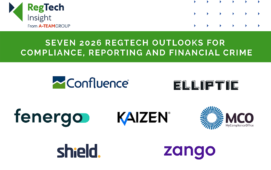The Global FX Division of AFME, SIFMA and ASIFMA announced today that its members are recommending a partnership with DTCC and Swift in order to develop a foreign exchange trade repository, where information can be stored electronically to provide additional transparency for regulators.
This selection is the culmination of an extended evaluation, Request For Information (RFI) and public Request for Proposal (RFP) process that began back in December 2010, with the RFP issued in April 2011.
The Global FX Division, comprising 22 market participants representing over 90% of the global foreign exchange market, is leading this industry response to regulatory requirements that call for certain FX trades to be reported to a trade repository. Dodd Frank legislation in the US is at the forefront of this, with equivalent proposed requirements in other regions, including Europe and Asia.
The next phase will see DTCC and Swift working with the Global FX Division to scope out the details of the foreign exchange trade repository. Key areas include ensuring the functionality and technology meet the regulatory requirements – particularly challenging for FX due to the number of participants, the volume of trades and the fact that participants in the FX markets are truly global – as well as understanding how the needs of multiple regulators can be met.
James Kemp, managing director of the Global FX Division commented: “The industry is committed to taking a proactive role in ensuring an industry response meets the enhanced transparency requirements as driven by the G20. Trade repositories promote increased safety and soundness of financial markets through greater transparency to global regulators of transactional information and counterparty risk exposures.
“To ensure that regulators have access to the maximum amount of data and that market participants of all sizes are not overburdened with multiple reporting formats, our aim as far as possible is to standardise industry reporting in all regions. Weare actively discussing this with regulators in multiple countries, to understand their requirements and how we can help meet them.”
Subscribe to our newsletter





